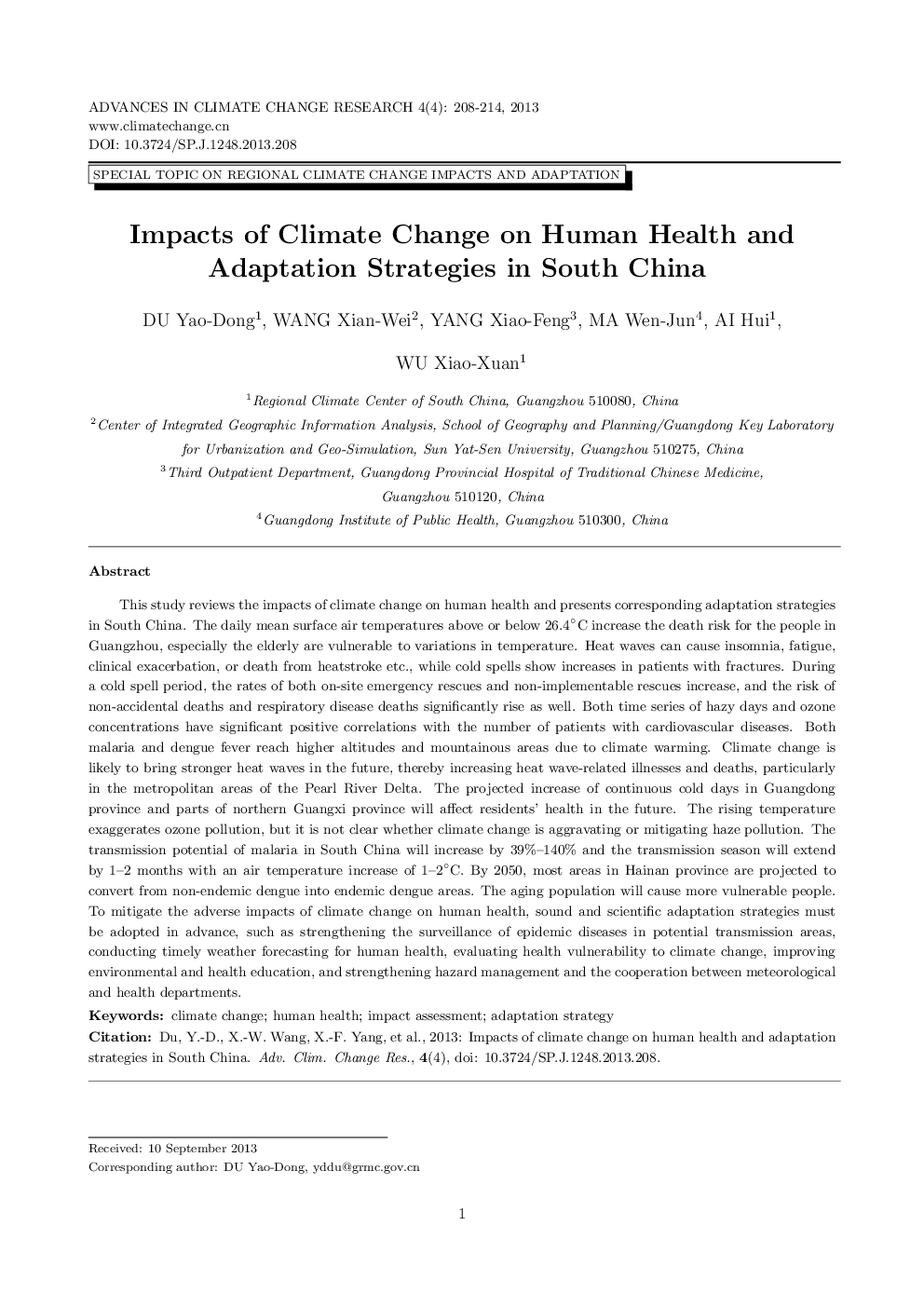| کد مقاله | کد نشریه | سال انتشار | مقاله انگلیسی | نسخه تمام متن |
|---|---|---|---|---|
| 4673627 | 1346937 | 2013 | 7 صفحه PDF | دانلود رایگان |
This study reviews the impacts of climate change on human health and presents corresponding adaptation strategies in South China. The daily mean surface air temperatures above or below 26.4°C increase the death risk for the people in Guangzhou, especially the elderly are vulnerable to variations in temperature. Heat waves can cause insomnia, fatigue, clinical exacerbation, or death from heatstroke etc., while cold spells show increases in patients with fractures. During a cold spell period, the rates of both on-site emergency rescues and non-implementable rescues increase, and the risk of non-accidental deaths and respiratory disease deaths significantly rise as well. Both time series of hazy days and ozone concentrations have significant positive correlations with the number of patients with cardiovascular diseases. Both malaria and dengue fever reach higher altitudes and mountainous areas due to climate warming. Climate change is likely to bring stronger heat waves in the future, thereby increasing heat wave-related illnesses and deaths, particularly in the metropolitan areas of the Pearl River Delta. The projected increase of continuous cold days in Guangdong province and parts of northern Guangxi province will affect residents’ health in the future. The rising temperature exaggerates ozone pollution, but it is not clear whether climate change is aggravating or mitigating haze pollution. The transmission potential of malaria in South China will increase by 39%–140% and the transmission season will extend by 1–2 months with an air temperature increase of 1–2°C. By 2050, most areas in Hainan province are projected to convert from non-endemic dengue into endemic dengue areas. The aging population will cause more vulnerable people. To mitigate the adverse impacts of climate change on human health, sound and scientific adaptation strategies must be adopted in advance, such as strengthening the surveillance of epidemic diseases in potential transmission areas, conducting timely weather forecasting for human health, evaluating health vulnerability to climate change, improving environmental and health education, and strengthening hazard management and the cooperation between meteorological and health departments.CitationDu, Y.-D., X.-W. Wang, X.-F. Yang, et al., 2013: Impacts of climate change on human health and adaptation strategies in South China. Adv. Clim. Change Res., 4(4), doi: 10.3724/SP.J.1248.2013.208.
Journal: Advances in Climate Change Research - Volume 4, Issue 4, 25 December 2013, Pages 208–214
